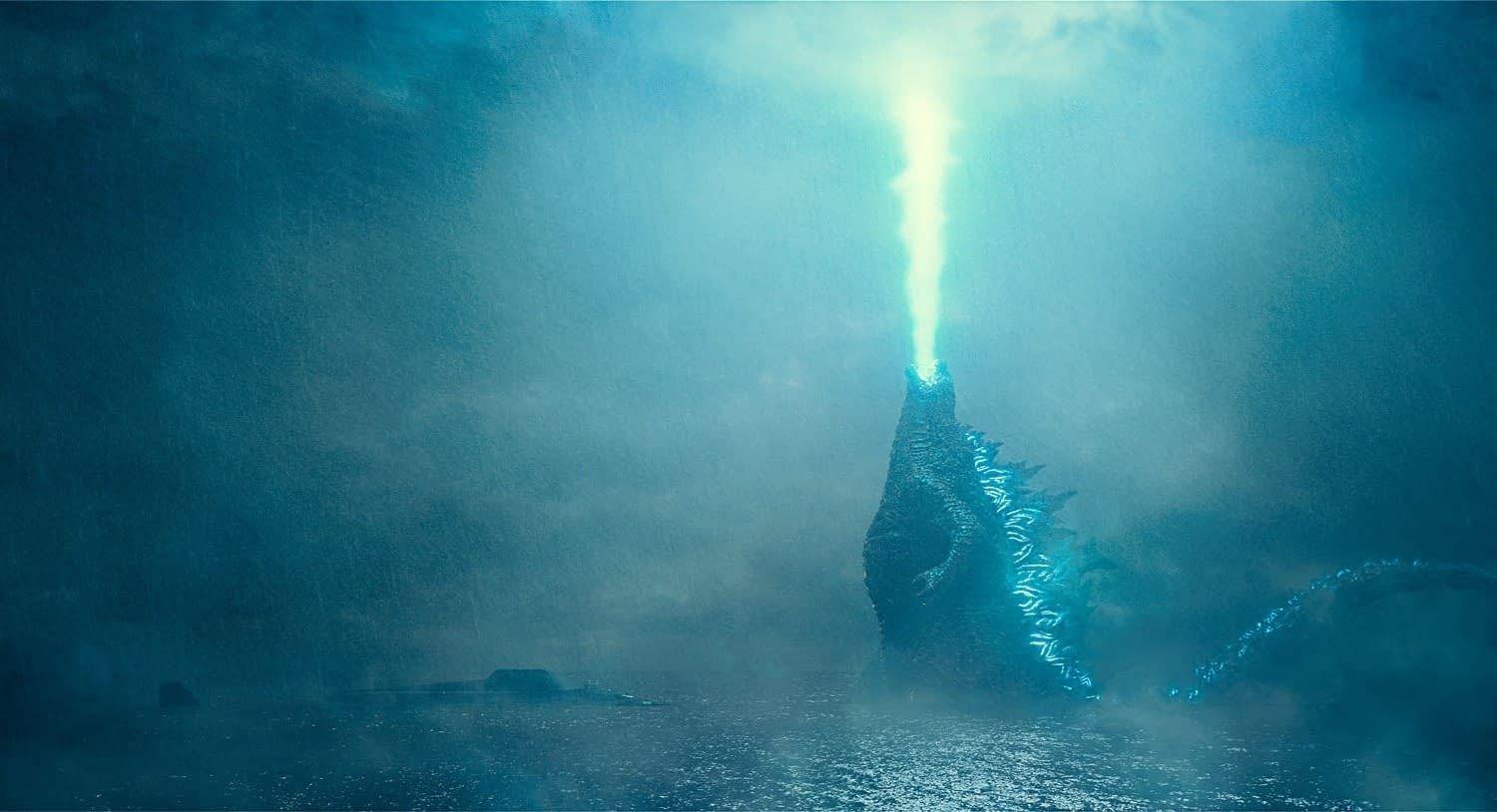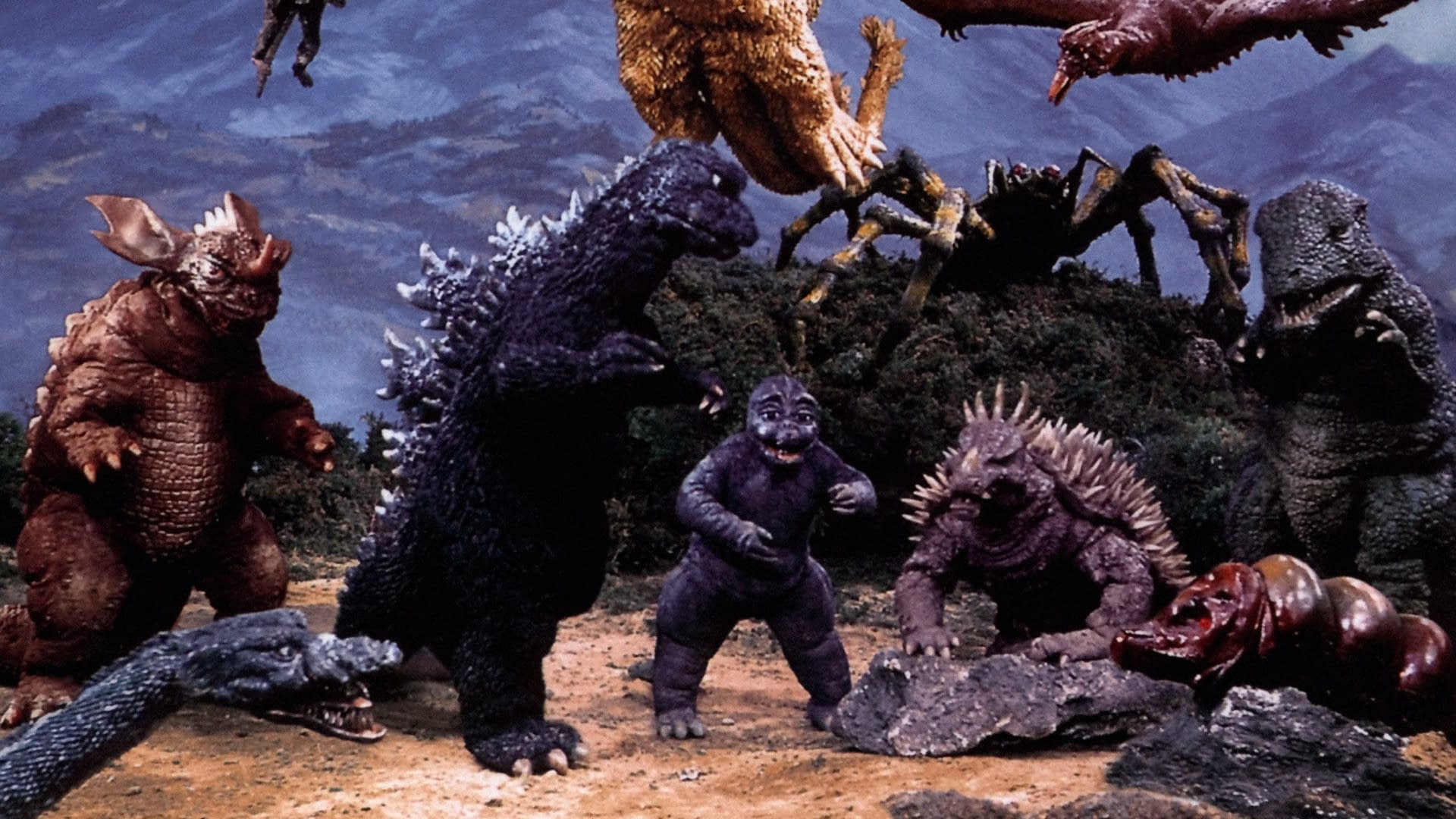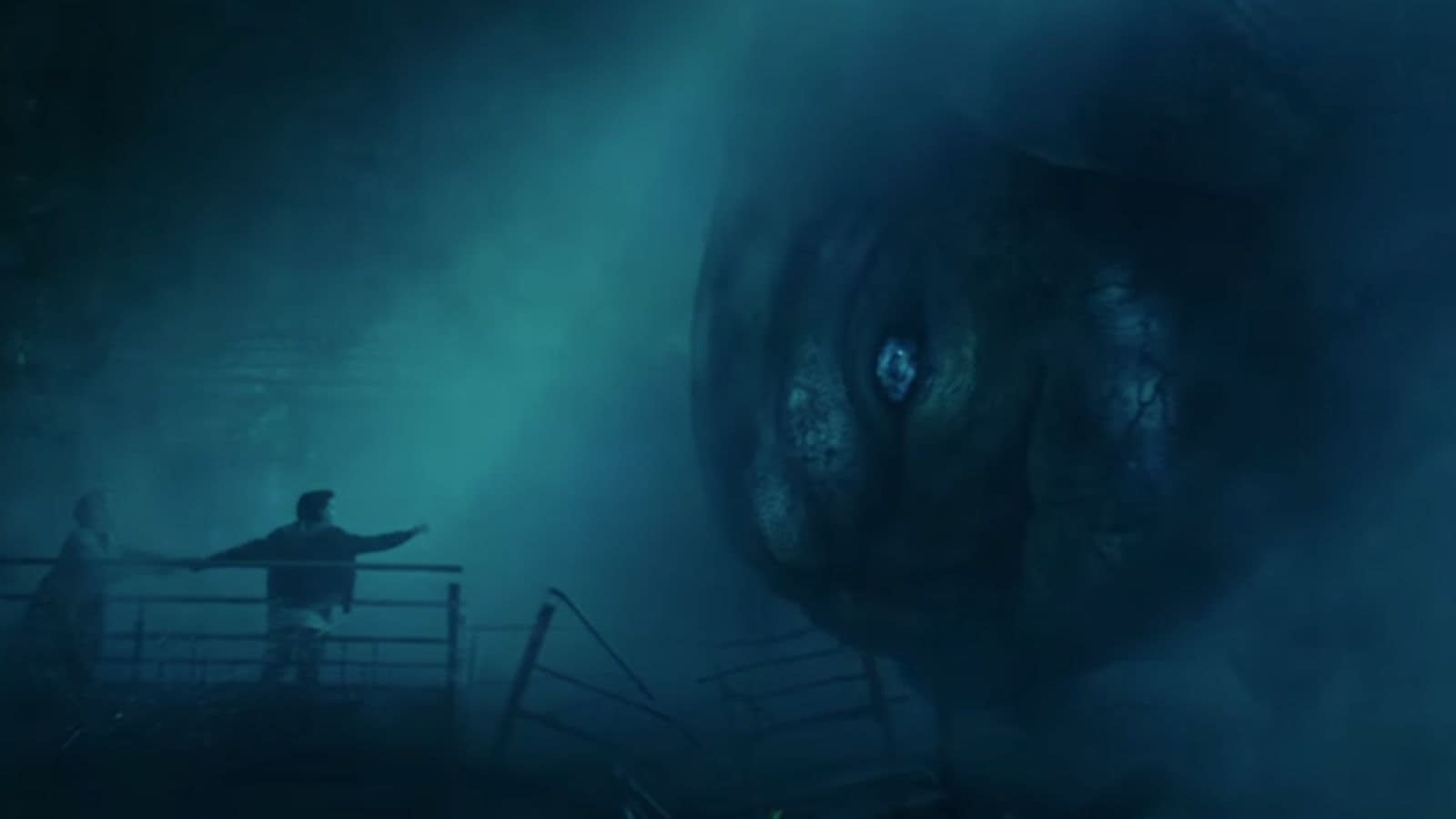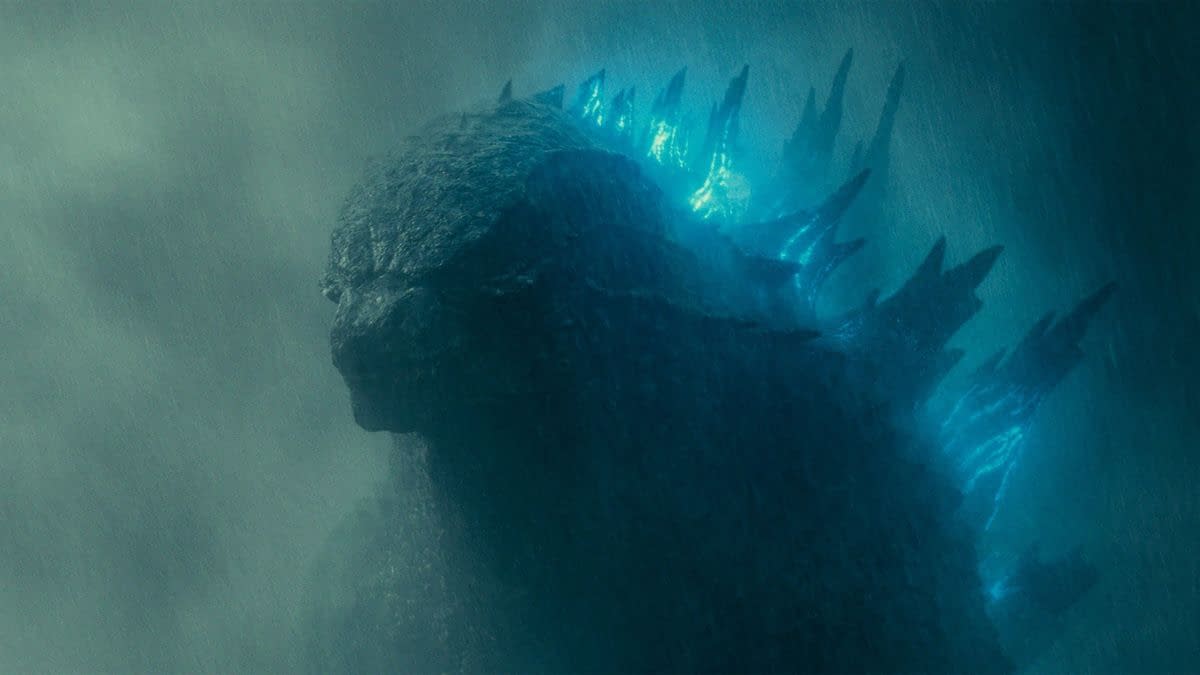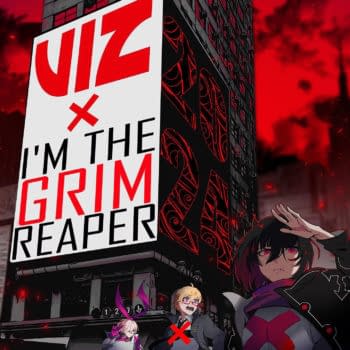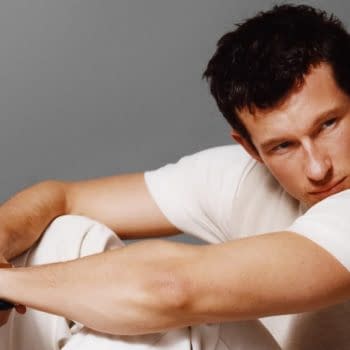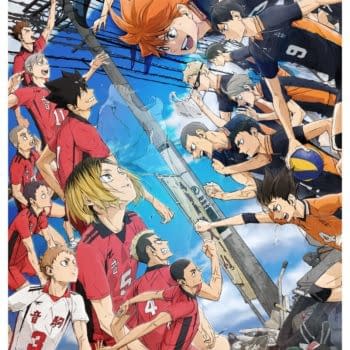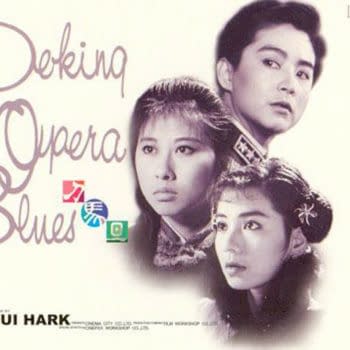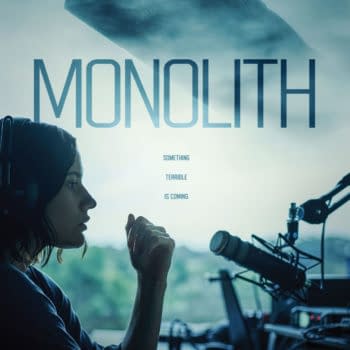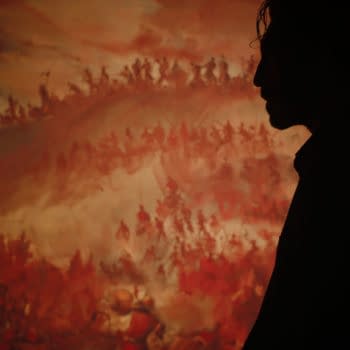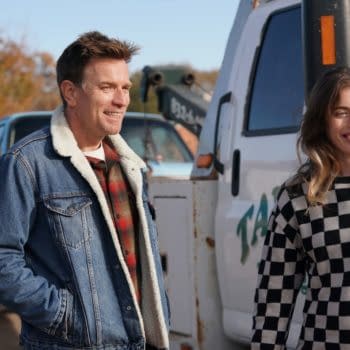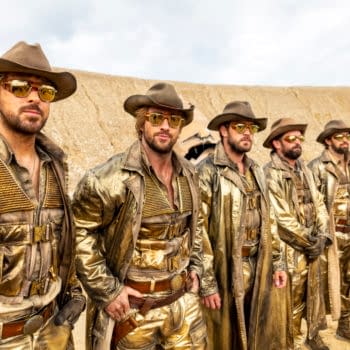Posted in: Legendary, Movies | Tagged: christ parable, destroy all monsters, godzilla, godzilla king fo the monsters, kaiju, King Ghidorah, legendary pictures, monsters, Mothra, movies, Rodan, toho studios
What is "Godzilla: King of the Monsters" Really Saying?
Godzilla movies are always about something, so what does Godzilla: King of the Monsters really say?
At heart, it's a kid's franchise. It didn't use to be. The original 1954 Gojira was a serious adult movie in Japan. Then the American distributors cut out the most serious parts and spliced in Raymond Burr.
After that, Toho Studios turned Godzilla into a franchise aimed at kids.
Godzilla: King of the Monsters is a movie with one job: smash giant monsters together and wreck stuff. On the surface, Godzilla movies are monster fights for kids. It's easy to dismiss them as no more than that.
You'd think that was easy, right? Alas, no. Godzilla is a metaphor. Godzilla and its fellow dai kaiju always have to be a symbol or metaphor for something.
In Japan, Godzilla represented the consequences of the atomic bomb. When he became a cuddly kid's monster in the Sixties and Seventies, he became a symbol for "nuclear power = good". He even got a son Godzuki (who looked like a creepy old Asian guy painted green) so he could be a symbol for the Good Dad (though that should really mean Godzilla was female for laying that egg).
Even the weird and trippy Godzilla vs. Hedorah aka Godzilla vs. The Smog Monster was a clunky anti-pollution environmentalist message.
Godzlla Should Not Be a Good Guy
I wonder why nobody mentioned that King of the Monsters is a 2019 Hollywood blockbuster remake of the 1968 Kaiju mashup Destroy All Monsters. In that movie, aliens mind-control the major monsters to conquer Earth. When the Earth monsters break free of their control, the aliens bring in King Ghidorah to fight them and take over Earth. Godzilla and the Earth monsters kill Ghidorah and the aliens, then back home to their respective islands.
You can read Destroy All Monsters as an allegory for Japan standing against an imperialist power's attempt to conquer them. That imperialist power can be read as America. Japanese manga, anime and Science Fiction often use aliens to stand in for America trying to conquer Japan. They still do that now.
The movies from 1984 to the early 2000s turn Godzilla back into a bad guy. He was a force of nature, uncontrollable and something to be feared. Godzilla now represented the economic uncertainty of post-Bubble Japan, a symbol of humanity's mistakes and hubris back to bite them. He was only good by default, battling worse monsters than him. At best he was an antihero.
What's the Message This Time?
Godzilla: King of the Monsters is a big budgeted Hollywood blockbuster with a bunch of mixed and confusing messages. The bad guys are a band of murderous ecoterrorists who want to unleash all the monsters to "restore balance", which makes no sense. Eco-terrorists are generally a right-wing paranoid fantasy since real-life ones that are so deadly don't exist. From there, none of the human characters in the movie made much sense, nor were they worth caring about.
The filmmakers are Godzilla fanboys who peppered it with Easter eggs that referenced the old movies. They bring back classic monsters like Rodan, Mothra and King Ghidorah, of course. They reference the surreal twin priestesses who used to be Mothra's heralds by having twin female scientists studying Mothra. That's a sign of the movie's problem. It wants to be a serious, grim monster movie that ends up loud, joyless and no fun at all. Godzilla movies now are not meant to take themselves so seriously. They work best as oddball metaphors of sociopolitical moments. The Japanese seem to understand that better than Hollywood filmmakers do.
Godzilla is not only a good guy but actively protective of humans. The movie bends over backward to portray Godzilla not only as a god but as a good guy. Godzilla a guardian of humanity. Godzilla looks paternally at humans and moves away with no intention of harming or eating them.
On top of that, they also make Godzilla both the kaiju Batman and kaiji Christ. He practically dies for Man's sins when the military tries to kill him and Ghidorah with an "oxygen destroyer" bomb (a callback to the original bomb from the 1954 movie). Then Dr. Serizawa (also named after the scientist who kills him in the 1954 movie) detonates a bomb to restore him to fight for humanity.
Why is Hollywood so hung up on Christ parables anyway? Godzilla and the Earth monsters are the first gods. Godzilla is the king. Christ is a big scaly lizard.
And the weirder message comes at the end of the movie. The humans decide they need Godzilla to save them from King Ghidorah. On the one hand, you could read that message as "we should respect nature", but it says something else that's more pessimistic, and possibly unintended.
The movie actually says we should support a benevolent dictator (Godzilla) because he would protect us from a worse dictator (Ghidorah) who wants to kill us all. And let's hope Godzilla doesn't decide to eat everyone later.
Godzilla establishes himself as the apex predator and the remaining monsters bow in submission, the message is not about respecting nature about of power, dominance and submission. As a political message, it's anti-democratic.
If we actually took this movie seriously, it would be deeply disturbing.


